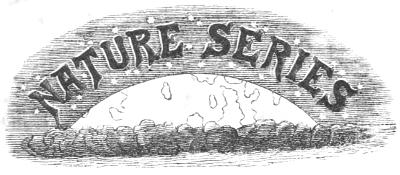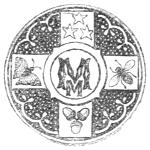
DEGENERATION.

NATURE SERIES.
DEGENERATION.
A
CHAPTER IN DARWINISM.
BY
PROFESSOR E. RAY LANKESTER, F.R.S.,
FELLOW OF EXETER COLLEGE, OXFORD.
London:
MACMILLAN AND CO.
1880.
The Right of Translation and Reproduction is Reserved
LONDON:
R. CLAY, SONS, AND TAYLOR,
BREAD STREET HILL, E. C.
TO MY FRIEND
ANTON DOHRN
THESE PAGES
Are Dedicated
IN MEMORY OF OUR COMPANIONSHIP
AT JENA AND NAPLES.
E. R. L.
January, 1880.
DEGENERATION.
DEGENERATION.
It is the misfortune of those who study thatbranch of science which our President has done somuch to advance—I mean the science of livingthings—that they are not able, in the midst ofa vast assembly,[1] to render visible to all eyesthe actual phenomena to which their inquiriesare directed. Whilst the physicist and the chemistare able to make evident to the senses of a greatmeeting the very things of which they have totell, the zoologist cannot hope ever to share withthose who form his audience the keen pleasureof observing a new or beautiful organism; hecannot demonstrate by means of actual specimensthe delicate arrangements of structure which[2]it is his business to record, and upon which hebases his conclusions. It is for this reason thathe who would bring to the notice of laymen somematter which at the moment is occupying the attentionof biological students, must appear to be undulydevoted to speculation—hypothesis—to support whichhe cannot produce the facts themselves but merelythe imperfect substitutes afforded by pictures. Itis perhaps not altogether a matter for regret thatthere should be in one great branch of science, asthere is in biology, so very marked a disproportionbetween the facilities for demonstrating facts andthe general interest attaching to the theories connectedwith those facts. We may be thankful thatat the present day we are not likely, in the domainof biology, to make the mistake (which has beenmade under other circumstances) of substituting themere inspection and cataloguing of natural objectsfor that more truly scientific attitude which consistsin assigning the facts which come under our observationto their causes, or, in other words, to theirplaces in the order of nature. Though we mayrightly object to the attempt which is sometimesmade to decry the modern teachings of biology[3]as not being “exact science,” yet we may boldlyadmit the truth of the assertion that we biologistsare largely occupied with speculations, hypotheses,and other products of the imagination. All truescience deals with speculation and hypothesis, andacknowledges as its most valued servant—its indispensableally and help-meet—that which our Germanfriends...